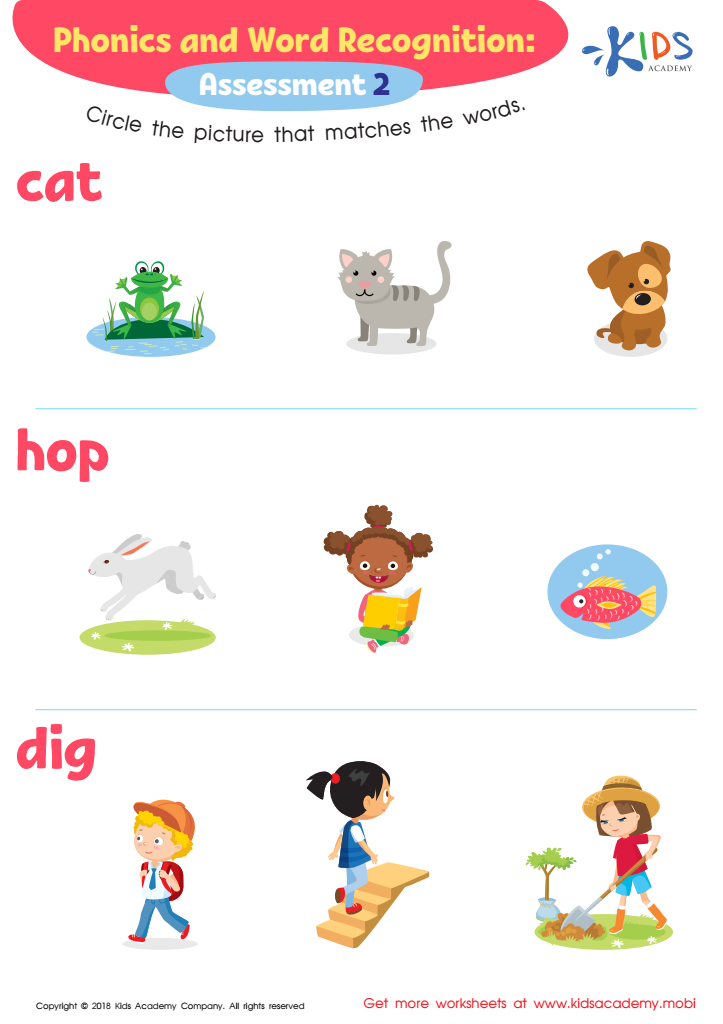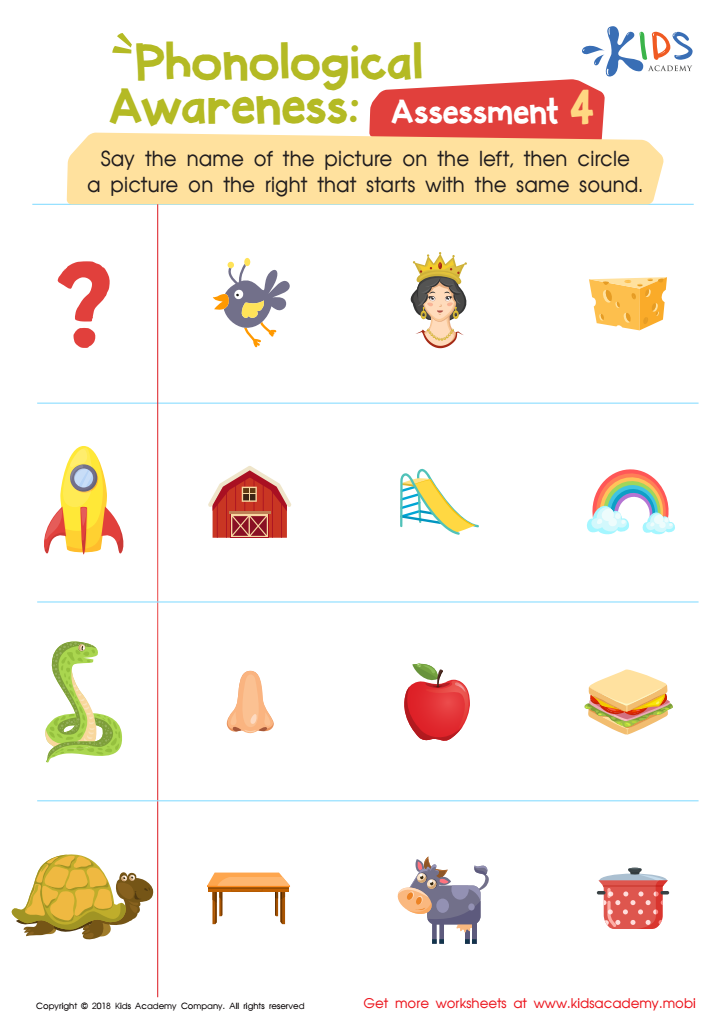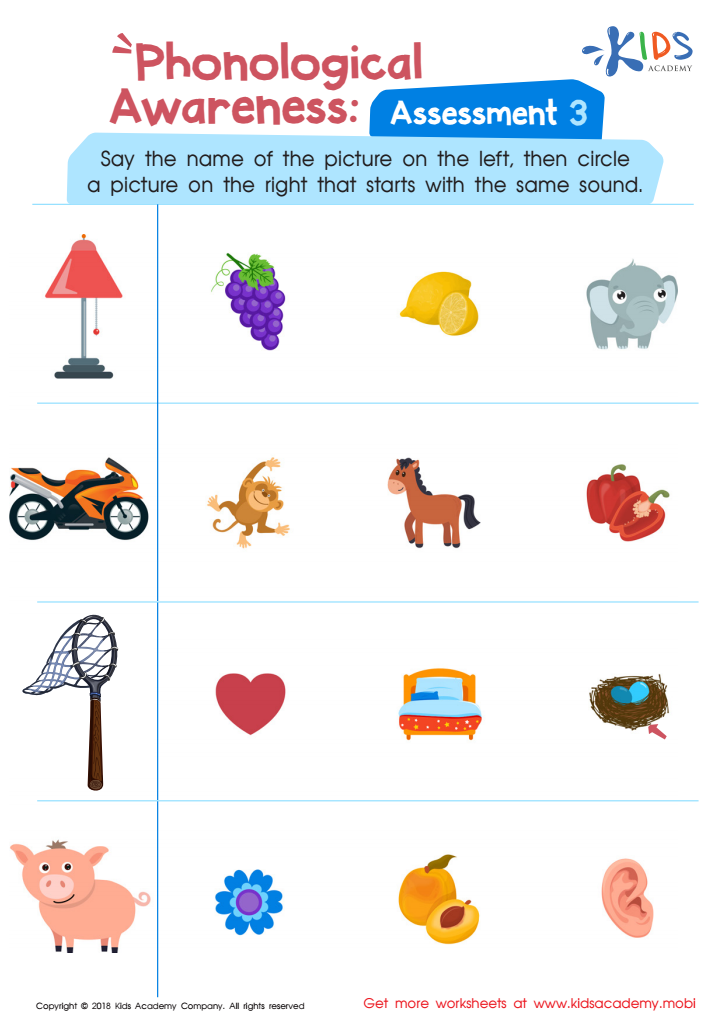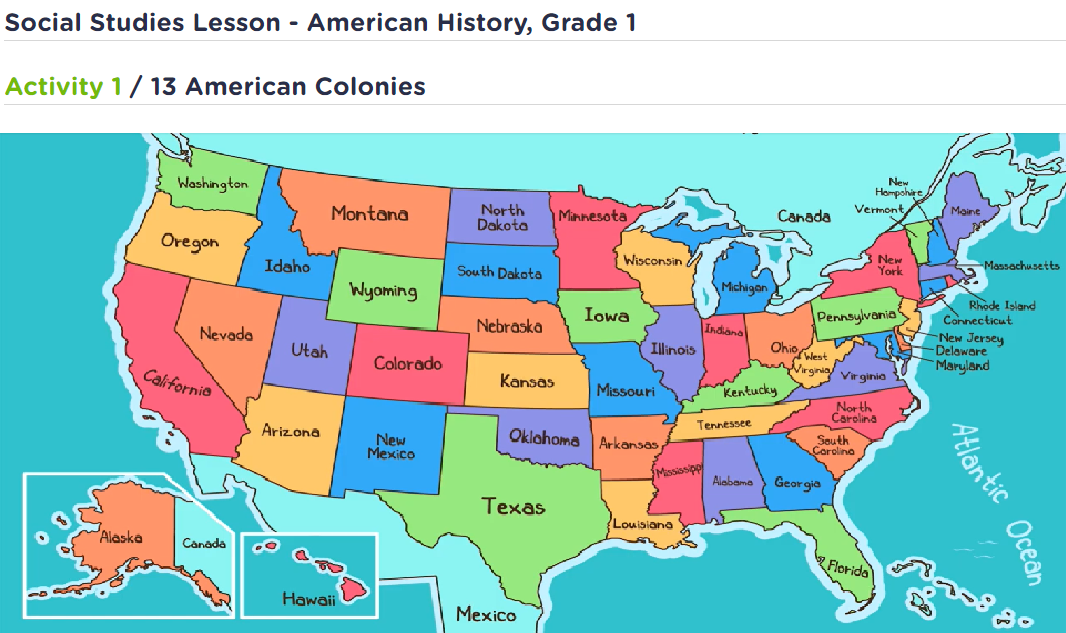Extra Challenge Alphabet worksheets activities for Ages 4-9
3 filtered results
-
From - To
Discover our Extra Challenge Alphabet worksheets designed for children aged 4-9! These engaging activities go beyond the basics, offering opportunities to deepen letter recognition and phonetic skills. Perfect for reinforcing learning at home or in the classroom, our worksheets include a variety of fun tasks like tracing, matching, and creative letter exploration. Each worksheet is thoughtfully crafted to challenge young learners, catering to different skill levels, ensuring all children can grow and thrive. Encourage your child's love for letters and language while enhancing their critical thinking skills with our Extra Challenge activities. Dive into the adventure of learning today!


Phonological Awareness: Assessment 2 ELA Worksheet


Phonological Awareness: Assessment 4 Worksheet


Phonological Awareness: Assessment 3 Worksheet
Parents and teachers should care about Extra Challenge Alphabet activities for children aged 4-9 because these activities foster early literacy skills and promote cognitive development. At this age, children are at a crucial stage of language acquisition, where they begin to recognize letters, sounds, and words. Extra Challenge activities go beyond standard curriculum practices, providing diverse, engaging ways to reinforce letter recognition and phonemic awareness.
These activities encourage critical thinking and problem-solving abilities through hands-on learning. By incorporating creative tasks like alphabet puzzles, scavenger hunts, and letter-based games, children can deepen their understanding of the alphabet while having fun. Such interactive experiences not only enhance literacy skills but also promote social interaction and teamwork, essential for overall child development.
Moreover, these activities cater to different learning styles, making it easier for children who may struggle with conventional learning methods. Extra Challenge Alphabet activities help build confidence in young learners, motivating them to explore reading independently. Ultimately, investing in these additional resources prepares children for future academic success, laying a strong foundation for their lifelong learning journey. Thus, recognizing the importance of these activities is vital for nurturing well-rounded, literate students.

 Assign to My Students
Assign to My Students
















